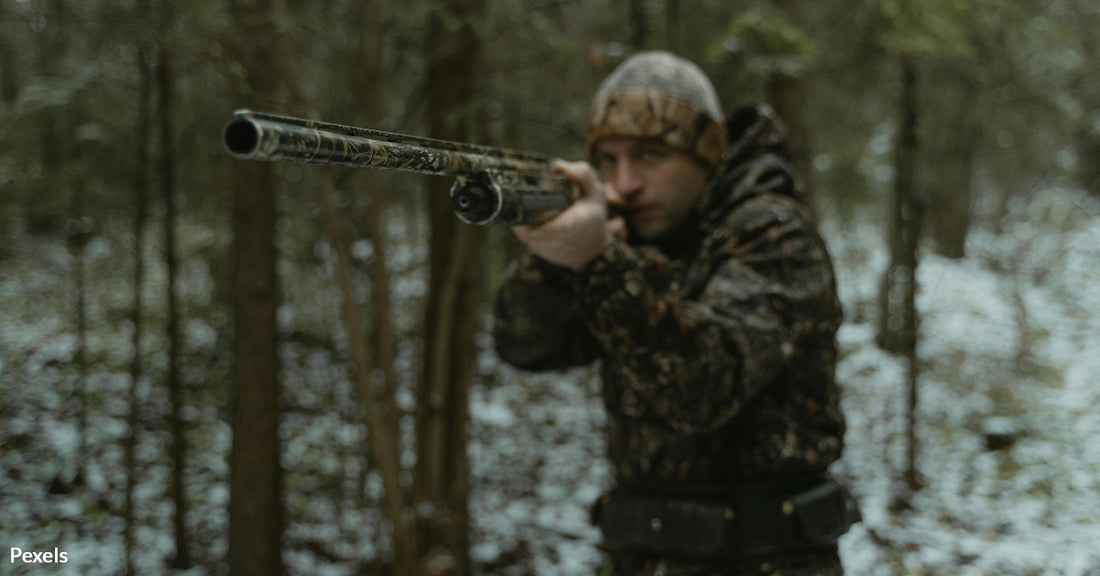Former Wildlife Board Member Accused of Manipulating Hunts in High-Dollar Baiting Scheme
Matthew Russell
A former Utah Wildlife Board member faces serious legal charges after being implicated in an illegal hunting operation that allegedly involved baiting game animals on his ranch.
Wade Raymond Heaton, 51, a Kane County Commissioner, has been charged with multiple offenses linked to his operation of Color Country Outfitters, a hunting guide service that specialized in high-dollar mule deer hunts.

Serious Allegations Against a Wildlife Official
The charges against Heaton are significant. Prosecutors have filed a pattern of unlawful activity charge, a second-degree felony, alongside six counts of wanton destruction of protected wildlife and other related offenses. The allegations revolve around claims that Heaton and his guides used bait to lure mule deer, a practice that Utah law banned in 2021, according to GearJunkie.
The investigation, which began in August 2023, revealed that Heaton and his employees allegedly spread corn feed across his property to attract deer to specific locations. These areas, known as hunting blinds, provided paying clients with a clear shot at the animals. Investigators found evidence including trail camera footage and messages between Heaton and his employees that suggested this illegal activity had been ongoing for several years, KSL.com reports.

High-Stakes Hunts on Private Land
Clients who hunted on Heaton’s ranch paid between $3,000 and $40,000, with some reportedly paying as much as $48,000 for a single hunt. They were often shown photographs of specific deer, which were given nicknames like “Wolfman” and “Cialis,” and were allowed to choose which one they wanted to pursue. The deer were then lured to the baited sites, where the hunters could easily target them, reports The Salt Lake Tribune.
This operation took place on Heaton Ranch, which is part of the Alton Cooperative Wildlife Management Unit (CWMU), a public-private partnership in Utah that allows landowners to receive vouchers for big game permits. According to Outdoor Life, these permits can be sold to hunters, but landowners are required to provide comparable hunting opportunities to the public. Heaton’s alleged actions violated the regulations governing CWMUs, placing his participation in the program at risk.

Evidence and Investigation
The investigation into Heaton’s activities was thorough and complex. It began when the Utah Division of Wildlife Resources (DWR) received tips about possible baiting on the Alton CWMU. Conservation officers visited the site and discovered corn spread on the ground, game cameras positioned to monitor the baited areas, and no signs of cattle, which Heaton claimed were the reason for the feed, MeatEater reports. Further surveillance, including drone footage, captured employees of Color Country Outfitters actively preparing the sites by spreading bait and cutting shooting lanes to improve visibility for hunters.
One particularly damning piece of evidence came from trail camera images, which showed deer eating corn at the baited sites without any cattle present. The camera’s memory card had been deleted shortly after a deer was shot at one of the baited locations, but investigators were able to recover the images using specialized software, The Salt Lake Tribune reports. These images were crucial in building the case against Heaton and his employees.

The Legal and Ethical Implications
The charges against Heaton not only carry the possibility of prison time but also the potential suspension of his hunting privileges and removal from the CWMU program. The case has drawn significant attention due to Heaton’s former role on the Utah Wildlife Board, where he was involved in shaping the very regulations he is accused of violating.
Baiting, defined as placing food or nutrient substances to manipulate the behavior of wildlife, is illegal under Utah law because it contradicts the principles of fair chase in hunting. It also poses risks such as habitat damage and increased disease transmission among wildlife.
The Utah Legislature passed the baiting ban in 2021, a move that reflected growing concerns about the ethics and environmental impact of such practices.
Heaton’s will face the charges outlined by the Utah County Attorney’s Office. As the legal proceedings unfold, the outcome will likely have far-reaching consequences not only for Heaton but also for the broader hunting community in Utah.

A Shocking Fall from Grace
Heaton’s fall from grace is particularly shocking given his public service record and the significant role he played in Utah’s wildlife management. Appointed to the Utah Wildlife Board in 2019 by then-Governor Gary Herbert, Heaton was considered a key figure in the state’s efforts to balance wildlife conservation with hunting interests.
As GearJunkie reports, his abrupt resignation in 2023, followed by the revelation of these charges, has left many questioning how someone so deeply involved in wildlife management could allegedly engage in such egregious violations.
As the case progresses, it will serve as a critical test of Utah’s commitment to enforcing its wildlife protection laws. The investigation has already highlighted the need for strict oversight of hunting operations and the importance of holding even high-ranking officials accountable for their actions.
Click below to take action for wildlife!

